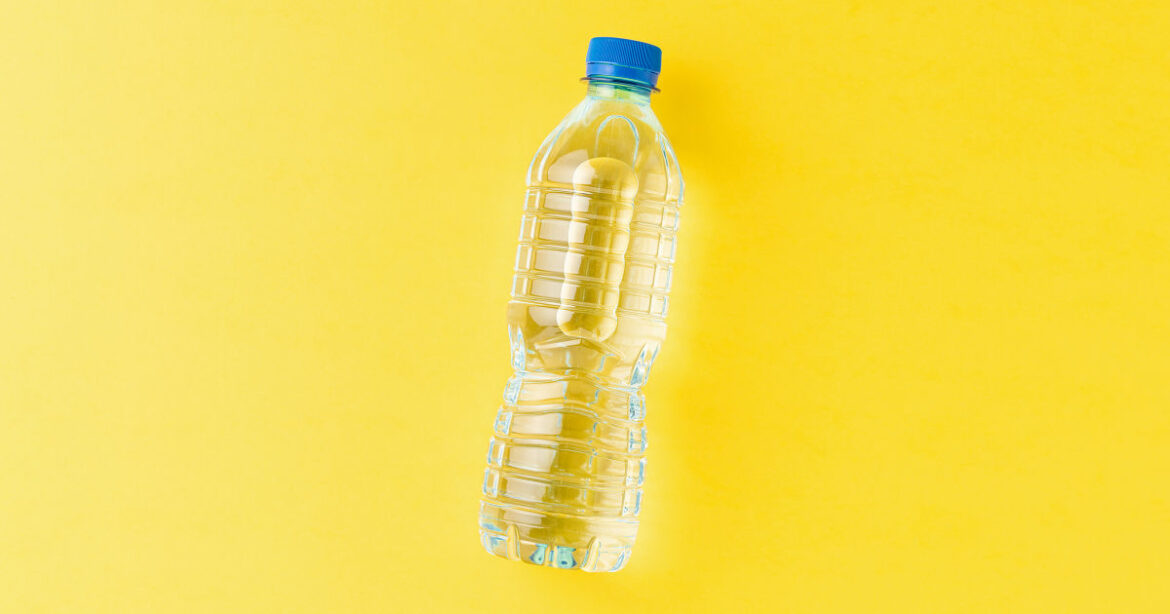Our options for consuming electrolytes are seemingly endless and always expanding. There are electrolyte drinks, powders, whole foods and natural juices fortified with electrolytes, and you can even find prepackaged electrolyte water on grocery store shelves.
Electrolytes — which include sodium, potassium, calcium and magnesium — are minerals that are crucial to cell and nerve function, hydration and muscle contraction. And while you definitely want some electrolytes in your diet, it’s usually not necessary or even recommended to drink electrolyte water or other fortified products on a daily basis, experts say.
“Water that’s being advertised as an electrolyte water often has both sodium and potassium added to it, and sometimes magnesium, too,” Julie Stefanski, registered dietitian, tells TODAY.com.
The number of electrolytes in the water, however, is typically inconsistent between brands. “It may be as low as 100 milligrams of sodium, or it could be much higher, depending on the product,” she adds. Any added amount allows the company to advertise its product as an electrolyte water, which may end up being much less or way more than your body needs.
If you’re looking for some extra hydration or worried your electrolyte levels are depleted, electrolyte water might be just the thing you need, but Stefanski warns there are a few things to consider before you twist the cap open.
How often should I drink electrolyte water?
First, you need to determine whether you need electrolyte water at all.
We all lose electrolytes as we sweat, but what you lose from a brisk walk or hour-long workout can usually be replenished with water and whole foods with naturally occurring electrolytes. In fact, you might already be overdoing it — most Americans consume too much sodium.
“Someone who’s … working indoors and they’re not exercising heavily, they’re not sweating a lot, it might not be necessary to have an electrolyte product throughout the day,” Stefanski says.
But if you find yourself sweating through your shirt — for example, from rigorous exercise that exceeds 60 minutes, or from construction or yard work outdoors — you may need extra electrolytes to replenish your stores. Being sick and dehydrated may also call for additional electrolytes.
To know if you need electrolyte water, Stefanski offers some clues:
You work outdoors for several hours a day.You’re exercising on an abnormally hot day.You’re an athlete doing intense exercise for longer than 60 minutes.You’re sick with diarrhea and vomiting, and dehydrated.You notice your sweat leaves behind a white film on your skin and clothes (an indication you’re losing high amounts of sodium).You’re taking a medication or you’ve been diagnosed with a condition known to cause excessive sweating.
If you fit any of these criteria, start first with one serving of electrolyte water and see how you feel. Healthy electrolytes drinks are especially beneficial since they’ll hydrate you and quickly replace the electrolytes you’ve lost.
What happens if I drink electrolyte water every day?
If you need extra electrolytes, drinking electrolyte water every day will replenish your stores depleted after an intense workout or time spent outside in high heat. The best way to gauge whether you’re consuming enough electrolytes, says Stefanski, is by monitoring your urination.
“Aim for a combination of water and electrolyte products so that you’re urinating at least every three to four hours,” she says. “While the color of pee is a funny way to judge your hydration, look for light pale urine that shows you’re hydrating at the right amount for your own body.”
That said, electrolyte needs aren’t one-size-fits-all, so whether you need it daily will vary from person to person depending on numerous factors, such as gender, age, weight and genetics, according to the American Heart Association.
And when it comes to electrolytes, more is not always better. If you drink electrolyte water daily and don’t need it, it may lead to complications — which are rare but still possible, the experts warn.
For example, if you have kidney disease, overdoing it on electrolytes can be life-threatening, according to the National Kidney Foundation. Pregnant women and those on blood pressure medications should also avoid over-consuming electrolytes, per the American Heart Association.
If you don’t have any underlying conditions, drinking too much of an electrolyte product can still lead to changes in heartbeat, fatigue, muscle weakness, neurological issues and nausea.
If you’re unsure whether electrolyte water is right for you, consult your doctor to get your electrolyte levels checked.
Can I drink electrolyte water instead of plain water?
“While electrolyte products may taste good, it’s not necessary to choose enhanced water every time you drink,” says Stefanski. “Using electrolyte products to round out your hydration regimen, such as in the morning or near exercise, creates a good balance of additional electrolytes without overdoing it.”
Otherwise, plain water and whole foods with electrolytes should be all you need to hydrate and feel your best, barring any major sweating episodes.
If you’re wondering about adding more electrolyte-fortified products to your diet because of a medical condition, Stefanski recommends working with a registered dietitian, who can help you calculate your individual fluid needs and come up with solutions to get more into your diet.

